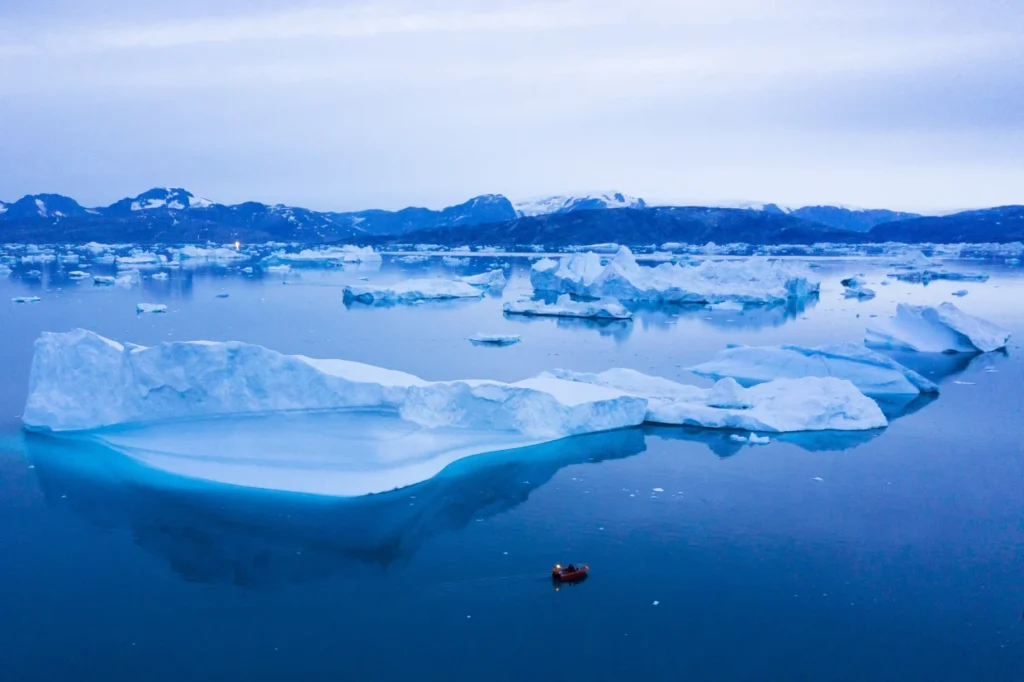
New research has revealed that the Greenland and Antarctic ice sheets are melting at an alarming rate. Furthermore, scientists are describing the rate of melting as ‘devastating’ due to its severity.
Accordingly, the study, published in the journal Nature, found that the ice sheets have lost a combined 6.4 trillion tons of ice since 1992, contributing to a global sea level rise of more than half an inch. The researchers used satellite data to measure the ice loss and discovered. “Nevertheless, it has been accelerating rapidly in recent years.”
The Greenland ice sheet has been melting at an average rate of about 280 billion tons per year. The Antarctic ice sheet has lost an average of 145 billion tons annually. Professor Andrew Shepherd is the lead author of the study. They stated that the rate of melting is increasing every year as well as that it poses dire consequences for humanity.
“If we continue on this trajectory, we will exceed the tipping point for irreversible change within the next few decades,” said Shepherd. “This will have catastrophic consequences for coastal cities and low-lying areas around the world.”
Rising temperatures in the polar regions, which are experiencing some of the most rapid warmings on the planet, are causing the melting of the ice sheets. As the ice sheets melt, they create a feedback loop by replacing less reflective ice with darker, more absorbent water. This, in turn, absorbs more heat and accelerates the melting process.
The loss of ice from the Greenland and Antarctic ice sheets is causing changes in ocean currents as well as weather patterns. Which could have far-reaching effects on the planet’s climate. The melting of the ice sheets could lead to more frequent and severe storms, droughts, and other extreme weather events. Nevertheless, this could have devastating effects on food production, water availability, and human health.
Scientists are calling for urgent action to reduce greenhouse gas emissions and slow the pace of global warming. This includes a rapid transition to renewable energy sources. Such as wind and solar power, as well as the implementation of policies to promote energy efficiency and carbon capture.
The study’s findings are a wake-up call for the world. The highlighting urgent need to take action to address the climate crisis. As a result, if we do not take action now, the consequences for future generations could be catastrophic. Therefore, the time for action is now.
